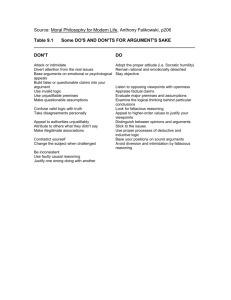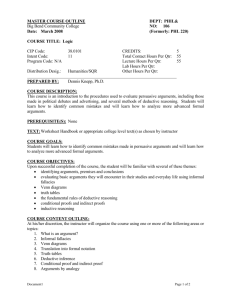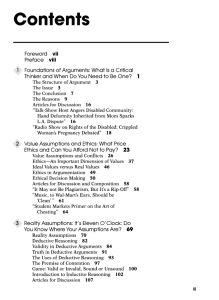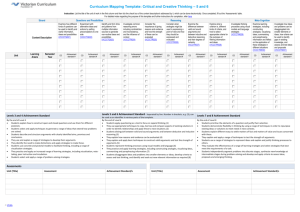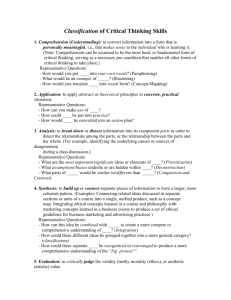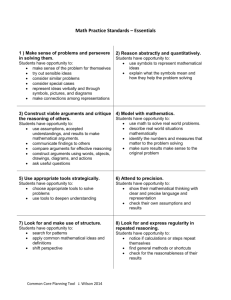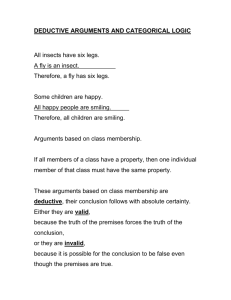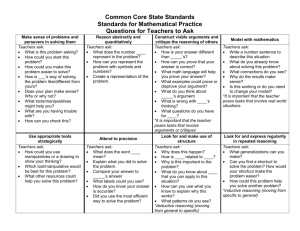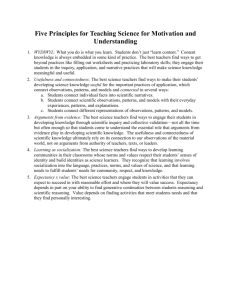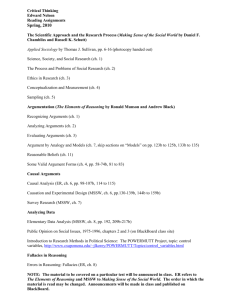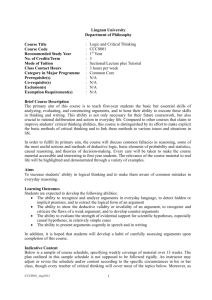LOGIC with Critical Thinking Online Class By Jesus Naungayan
advertisement
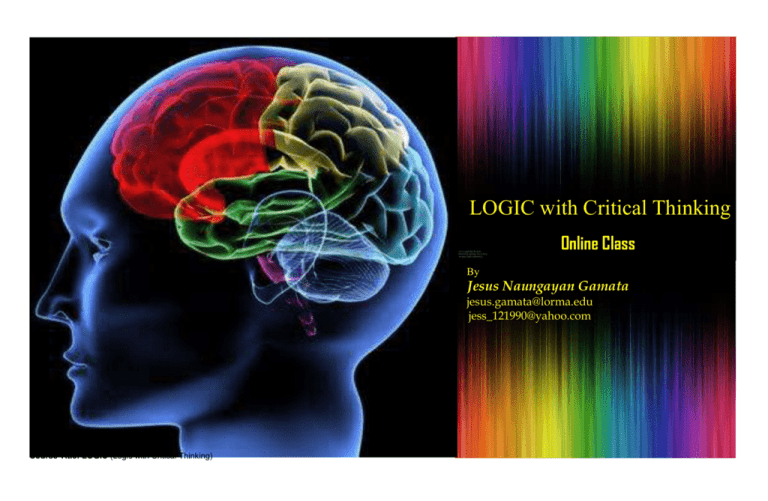
LOGIC with Critical Thinking Online Class By Jesus Naungayan Gamata jesus.gamata@lorma.edu jess_121990@yahoo.com Course Title: LOGIC (Logic with Critical Thinking) Course Description: This course aims to provide the students understanding on the basic concepts, symbols, terms and knowledge relevant to logical and critical thinking. It also provides the significance, purpose, and practical uses of studying logic as applied in critical thinking associated with how students are challenged to question, examine and evaluate ideas and information. This will serve as the guiding path for students to recognize good from bad reasoning; enabling them to point out defects of bad reasoning which they will avoid in their argument and eventually, will motivate them to value the systematic and objective approach in analyzing issue and in doing things. Moreover, it helps the students to carefully and personally understand what they see, hear and read geared towards the goal of college education as not only to teach students “what to think but how to think.” Course Objectives: At the end of the course, the students must be able to: a. discuss the meaning and relationship of logic and critical thinking; b. explain the importance and values of logic; c. identify the different concepts, terms and symbols and explain their definitions, uses and examples; d. gain knowledge regarding the rules governing definition of terms; e. distinguish and understand the propositions and its kinds; f. discuss fallacies, their uses and differentiate them under major divisions; g. identify symbolic logic, apply the five truth- function, logical punctuations and forms of arguments; h. evaluate deductive and inductive arguments; and i. apply critical thinking through argumentative essays, media and advertisements. Course Requirements: 1. Major examinations – students shall take and pass major examination per grading period. 2. Quizzes – students shall be given short/long, announced and unannounced quizzes. 3. Online Activities/Assignments/Seatworks – students shall be given at least 1 assignment and 1 seatwork per day. 4. Attendance – students are expected to attend the class and participate in the discussion every meeting 5. Critical thinking application- students are expected to come up with articles applying critical thinking and sample analysis on how it is applied in various aspects and industries. Course References: Evangelista, Francis Julius N. Critical Thinking A College Student’s Introduction to Logic. Mandaluyong City: National Bookstore, 2007. Ardales, Venancio B. LOGIC Towards Critical Thinking and Reasoning, 3rd Edition. Ermita, Manila: Educational Publishing House, 2008. Online References: http://ocw.mit.edu/index.htm http://ocw.mit.edu/courses/linguistics-and-philosophy/24-241-logic-i-fall-2009/ Lorma Colleges Grading System: *For every grading period - Prelim, Midterm, Final: (Class standing rating multiply by 2 plus Exam rating) divided by 3. *For the Final Rating – grade at the end of the course: 30% Prelim Grade + 30% Midterm Grade + 40% Final Grade. TOPICS PRELIMS 1. Introduction to Logic with Critical Thinking 2. Clarification of the Basic Concepts 3. Understanding the Problems of Language MIDTERMS 1. Attacking faulty Reasoning 2. Symbolic Logic 3. Assessing Truth Claims FINALS 1. Evaluating Deductive Arguments 2. Evaluating Inductive Arguments 3. Applying Critical Thingking
